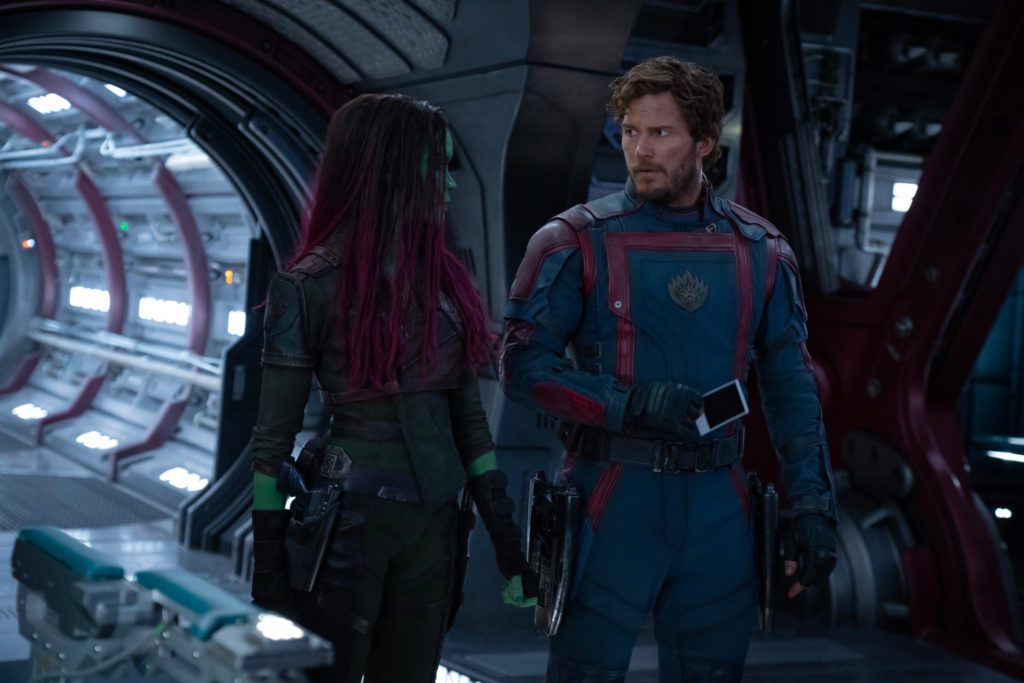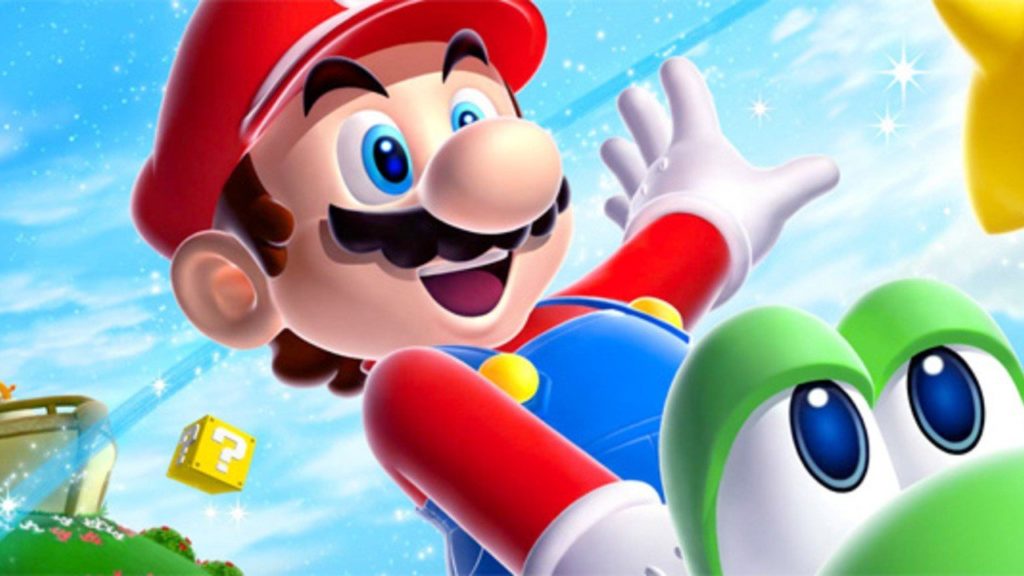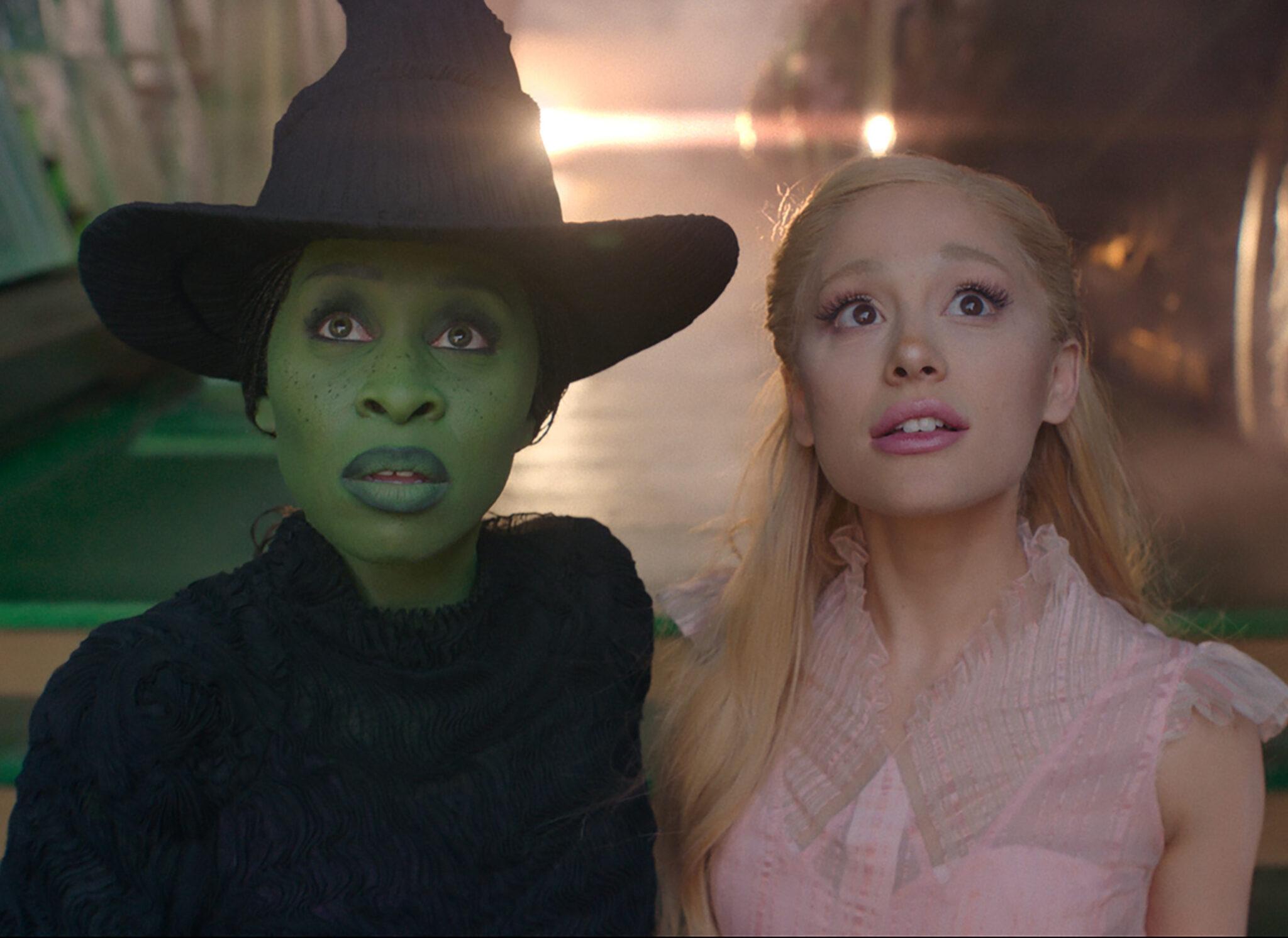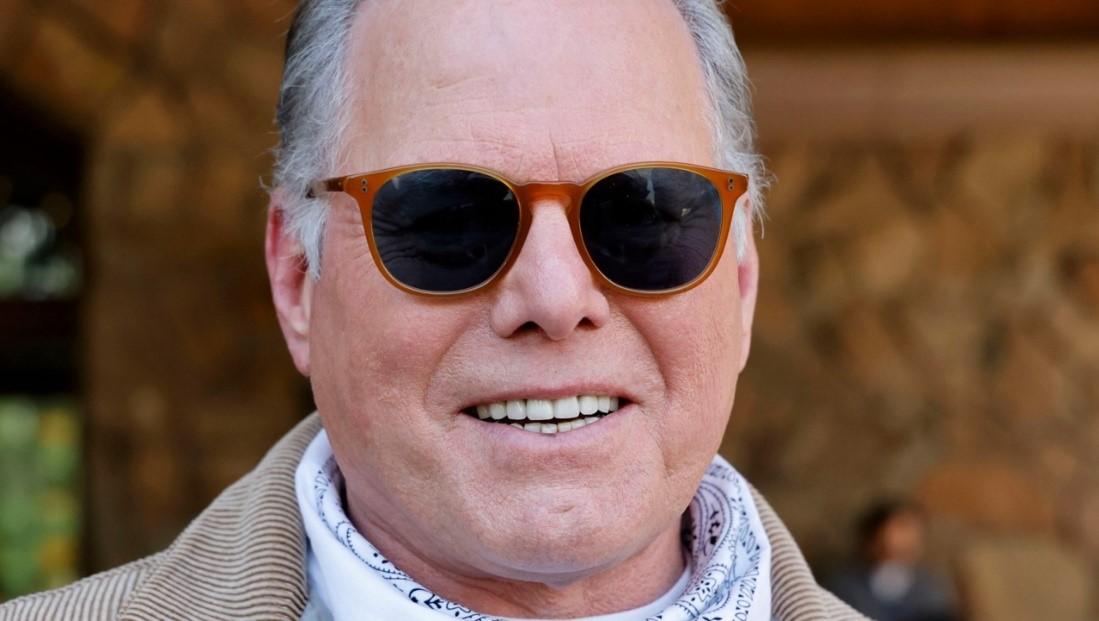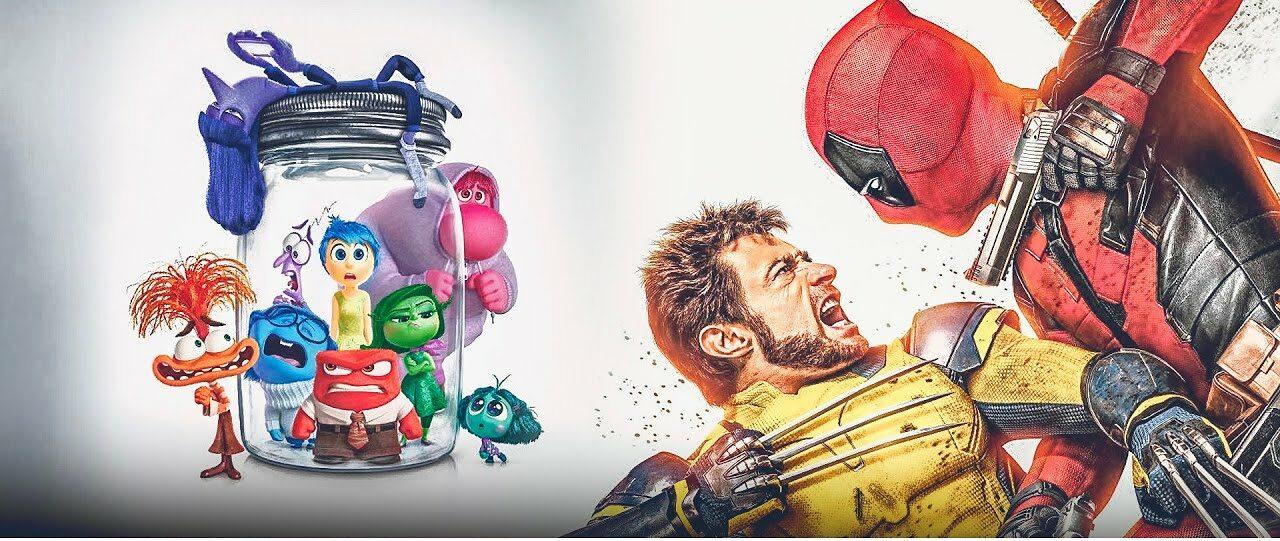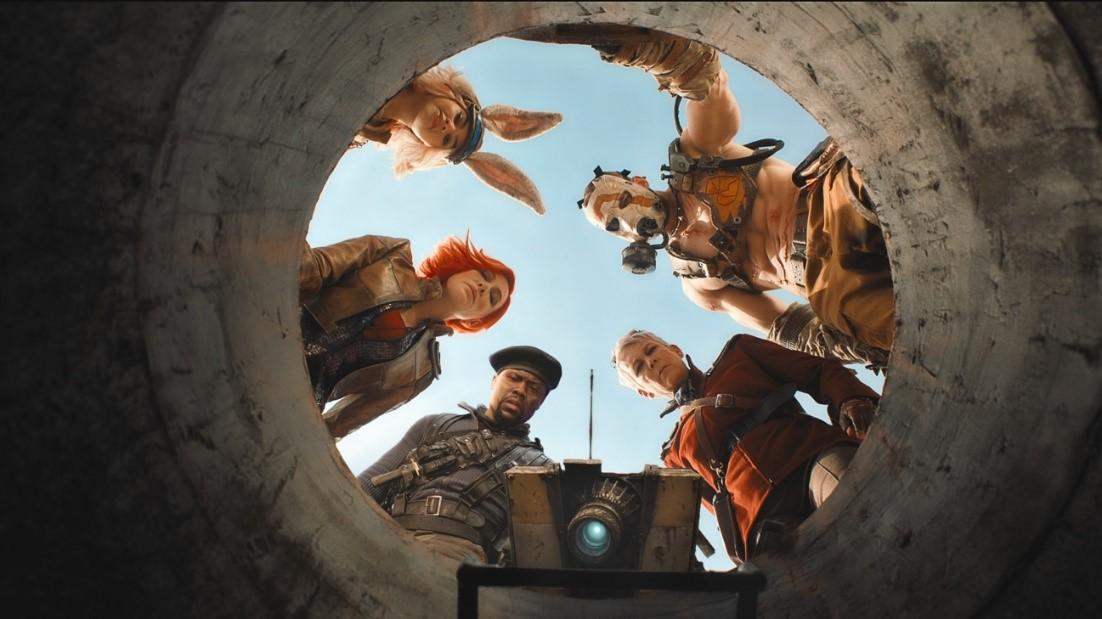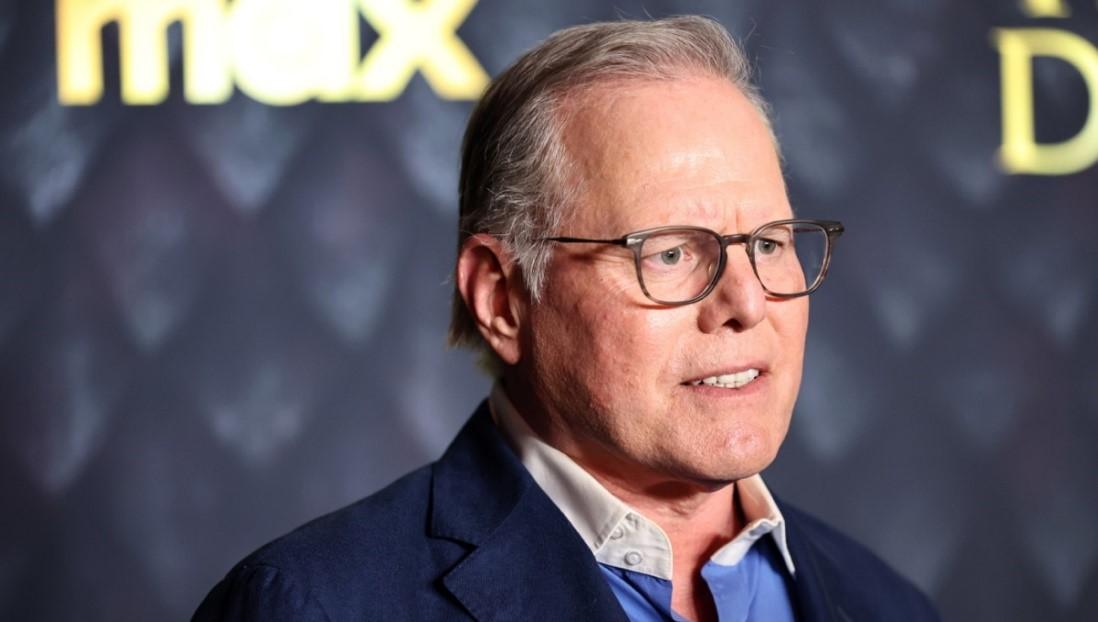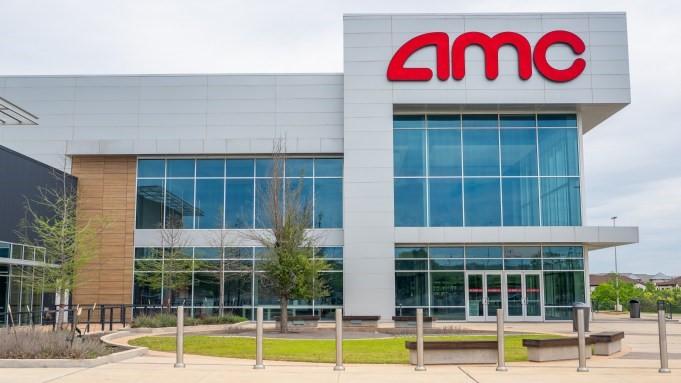VERDICT: James Gunn bids farewell to the MCU with a whimper, not a bang.
Chronic fatigue has set in. The dispiriting Guardians of the Galaxy, Volume 3 — writer-director James Gunn’s last Marvel/Disney project before blasting off to Warner Bros. — trades the goofy for the grim in a third-chapter grab for deeper relevance and meaning, but it’s a big misstep. The skillfully executed tonal shifts in the Tom Holland–starring Spider-Man movies demonstrate that this sort of thing can be done, but this time around the Guardians have lost their collective punch.
The film opens in Knowhere, a dingy set that resembles a Blade Runner slum grafted onto an outdoor tourist-trap shopping mall. Reintroducing the ensemble, the action finds team leader Peter Quill (Chris Pratt) in mid-mope, stewing in drunken self-pity after losing his girlfriend Gamora (Zoe Saldaña) in the course of Avengers: Infinity War. The rest of the team is holding it together: Gamora’s step-sister, the brutal but occasionally deadpan Nebula (Karen Gillan); wisecracking rodent Rocket (voiced by Bradley Cooper) and sentient tree-creature Groot (Vin Diesel); dimwitted but loyal Drax (Dave Bautista); and antennaed empath Mantis (Pom Klementieff).
Knowhere is abruptly attacked by the powerful Adam Warlock (Will Poulter) — son of Ayesha (Elizabeth Debicki), who vowed revenge during one of several post-credits sequences in Volume 2 — and Rocket is injured so badly that he lapses into a coma. His friends can’t do anything to help him without the passcode required to access his heart.
That passcode was placed there by The High Evolutionary (Chukwudi Iwuji, Gunn’s Peacemaker TV series), a mechanism to protect the proprietary technology used to transform Rocket from a baby raccoon to a walking, talking, thinking experiment, a part of a larger attempt to build a “perfect” civilization. (Of which the Sovereigns — Ayesha’s race of gold aliens who resemble walking Oscars — were another iteration.)
While the Guardians break into a pliable, viscous “living planet” (it appears to be covered in skin rather than dirt) to find the information they need to save their friend, the comatose Rocket has flashbacks to his life in the High Evolutionary’s lab, flashbacks that include other caged animals with hideous prosthetics. These animal-torture scenes cast a pall on the whole film, and they’re just a warm-up to later sequences involving genocide and children trapped in cages. (Parents might think twice about bringing children under the age of nine.)
Amidst this horror and sadness, Guardians of the Galaxy still wants to goof around like the old days, with Mantis tee-heeing over using her powers to make brutish guards fall in love with Drax, and Nebula losing her patience with Peter because he’s so darn human. The cast seems distracted, at times disinterested: Pratt’s air of contractual-obligation-based ennui has carried over from the Disney+ Guardians of the Galaxy Holiday Special. Saldaña — playing a different-timeline version of Gamora this time out — does a lot of shouting, and the other returning actors are given the greatest hits to play and little else.
Newcomer Poulter is underutilized, and that’s a bigger shame; Adam Warlock has a rich history as a character in Marvel Comics, but here he’s framed as something of an idiot, and not a particularly amusing one. As the film’s principal villain, Iwuji speaks with steely determination or foams at the mouth, with no apparent in-between setting. Of the newcomers, Miriam Shor makes the biggest impression as one of the High Evolutionary’s lieutenants. Much as Hedwig and the Angry Inch did two decades ago, Volume 3 taps into her chameleonic abilities.
Does the occasional emotional moment land? Sure. Do those moments wind up lost in space, floating in an oxygen-free environment with no place to land? Unfortunately, yes.
Even the once-pleasurable vintage pop songs that wallpaper these films have lost their atmosphere-enhancing life; in the first Guardians, they were the super-’70s faves of Peter’s deceased mother and the soundtrack of his lost childhood, integral and atmospheric. Now that he’s got an MP3 player and access to the pop music of other decades, the soundtrack is a random stranger’s Spotify playlist.
This is the ugliest of the Guardians movies in a literal sense as well. From the darkness of Knowhere to the bland suburbia of the High Evolutionary’s Counter-Earth, the film frequently operates in a color palette that’s unremarkable when it’s not actually nauseating. The few exceptions involve the sequences around that fleshy satellite, featuring some mod 2001-inspired space suits and interiors that mix future sheen with goopy tactile interactivity.
The Marvel Cinematic Universe has been wandering in the wilderness of late, a post–Avengers: Endgame tonal slump that — Black Panther: Wakanda Forever notwithstanding, with its themes of grief and rebuilding after the death of Chadwick Boseman — isn’t reversed here. One of the film’s best features is that it does a minimum of seeding the ground for the next five MCU sequels; one of its worst is that it generates little enthusiasm forever seeing these characters again.
Movie reviews are published in partnership with The Film Verdict.

